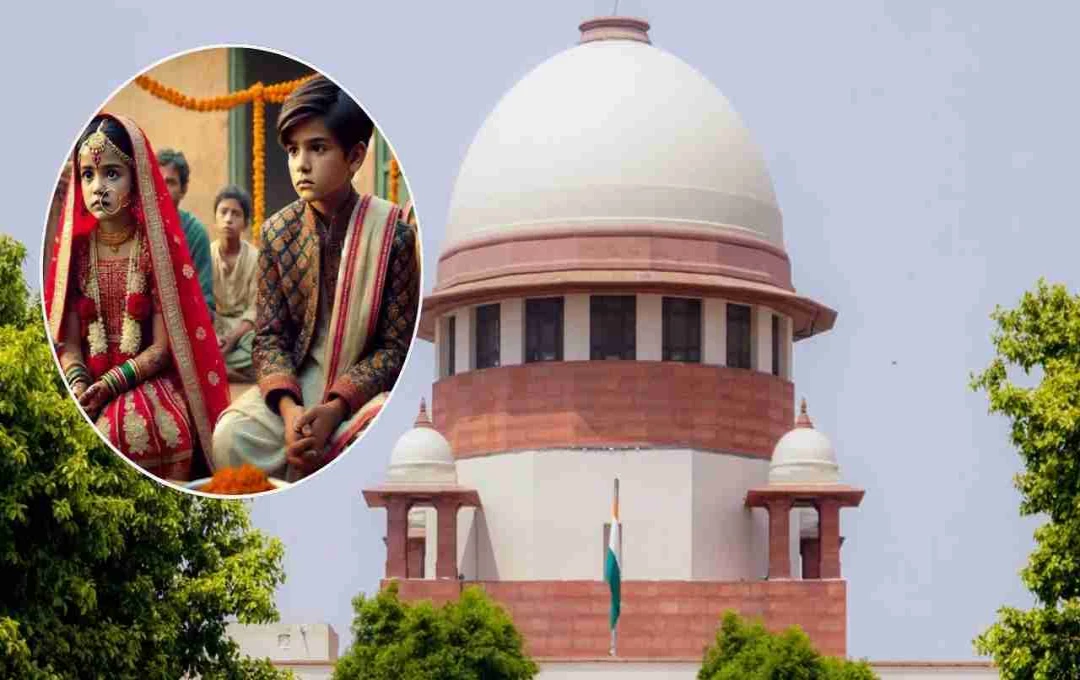The Delhi High Court has expressed concern over the validity of child marriages and the conflict between Islamic and Indian laws. The court stated that legal clarity should be brought by implementing a UCC to resolve societal confusion and disputes.
New Delhi: The Delhi High Court has expressed serious concern regarding the validity of child marriages and the conflict between Islamic and Indian laws on this issue. The court stated that this is a recurring dispute that creates confusion in society and the justice system.
Justice Arun Monga commented that according to Islamic law, if a minor girl reaches puberty, her marriage may be considered valid. However, Indian law considers this an offense and does not grant validity to such marriages.
Conflict between Indian Law and Islamic Law
According to Indian law, a person marrying a minor girl will be considered an offender under both the Bharatiya Nyaya Sanhita (BNS) and the Protection of Children from Sexual Offences (POCSO) Act. This directly implies that while Islamic law considers such a marriage valid, Indian law deems it an offense.
This very contradiction has emerged as a challenge before the court. The court questioned whether it is not time to resolve this conflict and move towards a Uniform Civil Code (UCC), so that a single law can be applied across the entire country?
‘Will followers of personal laws be branded as criminals?’
Justice Arun Monga stated that it is a serious dilemma whether society should be criminalized for adhering to long-standing Personal Laws. The court noted that such a conflict between personal laws and national law creates confusion and highlights an urgent need for legal clarity.
Hint towards UCC
The High Court clearly stated that it is now time for the country to move towards a UCC, i.e., Uniform Civil Code. The court observed that until a uniform legal framework is established, such disputes will continue to arise repeatedly.
The court questioned – "Should the entire community continue to be declared criminal, or should peace and harmony be promoted through legal certainty?"
Religious Freedom and Criminal Liability
The court also acknowledged that religious freedom is a fundamental right of every citizen, and the Constitution fully protects it. However, the court clearly stated that this freedom cannot be so extensive as to lead an individual into criminal liability.
The court suggested that a practical middle ground could be adopted. For instance, a uniform ban and penal provisions for child marriages could be established for all religions. This would prevent any conflict with laws like BNS and POCSO, and ensure the safety of children.
Court's Message – Decision to be Left to the Legislature
Justice Monga stated that this decision rests not with the court but with the country's Legislature. A permanent solution will only emerge when Parliament enacts clear and concrete laws on this matter. The court clarified that child marriages and related disputes can only be resolved through the legislative process.
Dispute Related to the Case
This observation was made during the hearing of a petition filed by a 24-year-old man. The man was accused of marrying a minor girl.
In the case, the girl claimed to be 20 years old, while the prosecution asserted that her age was between 15 and 16 years. This contradiction came before the court, and it was during the discussion on this matter that the court made serious remarks concerning child marriages and the conflict of laws.
Why is UCC Necessary?
A Uniform Civil Code means that a single set of laws applies to issues like marriage, divorce, adoption, inheritance, and property division across the country. Currently, different Personal Laws exist for various religions and communities in the country.










